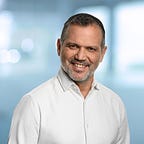The Paschal Lamb & The Kingdom of God
The first Mitzvah (Law) God commanded the people of Israel, just two weeks before their exit from Egypt, was actually a pretty enjoyable one. Every year, on Passover eve, which takes place this year on Saturday, March 27th, each Israeli household must take a lamb in its first year, bring it to the Jerusalem Temple, have a Cohen (Priest) slaughter it and clean it up, take the lamb back home, barbecue it in its entirety without cutting it, and then enjoy a festive dinner with the entire family.
Nevertheless, this was not an ordinary holiday meal. While all sacrifices were almost burned in their entirety on the altar as an offer to God, each lamb sacrifice had to be eaten by the family members. It was also strictly forbidden to take sacrifices outside of the Temple limits while the lamb sacrifice had to be taken home. That is why the Talmud states that on Passover night, “we are guests on God’s Table” (Tosaphot, Brachot 42a). God calls the Paschal sacrifice in Exodus 34–25, “My Lamb.” That night, God invites each family to come and eat His Lamb on His Table, and each Israeli home becomes a “little Temple.” That night, we taste the Kingdom of God, we return to the Garden of Eden, and taste the Tree of Life’s fruit.
Just weeks before the People of Israel’s entrance in the Land, Moshe warns the People in Deuteronomy 6 that once “God brings you back to the Land … to give you houses … full of good things … then your son will ask you … saying: what are the testimonies, the statutes, and the laws, which the Lord our God has commanded you?” Moshe knows that the next generation, which didn’t experience Egyptian slavery and didn’t experience the conquest of the Land and the trauma of war — a generation that lived a comfortable life — will doubt why the laws are necessary. This question is the exact same question asked by the wise son in the Haggadah, the 2,000-year-old text Jews read on Passover night. The answer suggested by the Haggadah is somewhat strange: “Open to him in the laws of Passover: We don’t eat dessert after the Paschal’s Lamb.” How the fact that we must eat a Paschal’s Lamb portion at the end of the meal, when we are already satisfied, and refrain from dessert and keep the meat taste answers the fundamental question of the “wise” son.
Every generation has faced the Law’s relevance question, from the first Christians in the first century, to the new European immigrants’ sons in America in the 20th century, to young Israelis’ in our days: “Why do we need God’s laws? Can’t we just be good human beings practicing whatever we feel is right for us?” The Haggadah answers by unveiling the lamb’s sacrifice secret: only when you act to fulfill God’s commandments, does your act belong to the Divine. When you do good deeds because it feels right, it still belongs to the Mundane. As human beings, we can connect to the Divine, sit at God’s table, and stroll alongside Him in the Garden of Eden (Rashi, Leviticus 26–12) when we fulfill His commandments. His commandments are our only knowledge about His Will and the way to connect to Him, as the Kabbalah states in the Zohar: “The 613 Mitzvot (“commandments”) are the 613 the King’s body parts.”
The first commandment of the Paschal sacrifice unveils the essence of the remaining 612 commandments: we are God’s children, and He wants us to enjoy life and eat the most tender meat, with fresh bitter herbs (i.e., Chimichurri) paired with four glasses of red wine. During the Kingdom of God times, all His commandments will, like the Paschal sacrifice, bring us pleasure and delight, true freedom, and self-expression, as described by Maimonides in Laws of Kings 12:
In that era, there will be neither famine nor war, envy or competition for good will flow in abundance, and all the delights will be freely available as dust. The occupation of the entire world will be solely to know God… according to the full extent of human potential, as Isaiah 11:9 states: “The world will be filled with the knowledge of God as the waters cover the ocean bed.”
